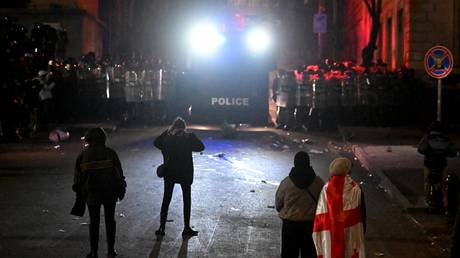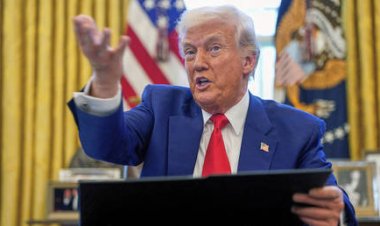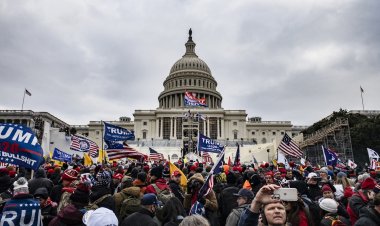Fyodor Lukyanov on Democratic Failures: Insights from Two Countries
Discover how recent events in Seoul and Tbilisi highlight the escalating tension between internal legitimacy and external control. Read the full article on RT.com.

While US President Joe Biden was on a tour of Africa, an unexpected crisis unfolded in South Korea. President Yoon Suk Yeol declared martial law, citing the necessity to eliminate “pro-North Korean anti-state forces.” This declaration resulted in military presence on the streets, widespread protests, and a rapid response from the National Assembly, which voted to rescind the martial law order. Following this, Yoon retracted his stance and issued a public apology.
The reaction from Western nations was mixed, as the situation caught many off guard and understanding the chaos in this strategically significant ally posed challenges. Analysts in diplomatic circles often search for deeper meanings behind political events, hesitating to attribute developments to mere errors or carelessness. Yet, at times, such oversights do occur.
This incident underscores a broader reality: contemporary international relations hinge on an evolving mix of formal and informal rules aimed at regulating political actors on both global and regional scales. These rules, whether enshrined in treaties or reflected in tacit understandings among allies, have historically provided stabilizing frameworks. However, as the global order evolves and the influence of American leadership diminishes, governments increasingly feel free to act in their self-interest without restrictions. Weakened external oversight makes unpredictable events, like the crisis in Seoul, more probable. The system appears to be entering a self-correcting phase, although its outcomes remain uncertain.
**Democracy’s Two Faces in Georgia and Beyond**
Recent electoral developments in Georgia showcase a similar dynamic. Two diverging political patterns are at play: the liberal model, which depends on external validation of electoral outcomes, and the national model, which emphasizes domestic legitimacy. In a liberal framework, an international “certification” process assesses the fairness of elections. If the “wrong” factions win or the election is questioned, demands for reevaluation arise. Conversely, the national approach views elections as internal matters, suggesting that dissent should be resolved through domestic legal frameworks.
Georgia has progressively shifted from the liberal model toward the national one, much to the dismay of its Western allies. This shift is not motivated by pro-Russian sentiment but by pragmatic national interests, particularly in economic terms. By resisting complete alignment with the anti-Moscow coalition, Tbilisi has secured economic advantages that resonate with its citizens. The support of most Georgians for their government reflects this success.
However, in the current global landscape, adherence to Western-defined political norms often takes precedence over economic rationality. Deviations from expected behavior are perceived as betrayals. In Georgia, as in many post-communist nations, segments of the population remain devoted to Western integration, even when it conflicts with domestic priorities. This raises an important question: is a commitment to the popular will still fundamental to democracy, or has it become secondary to geopolitical considerations?
**South Korea: Democratic Order Under Stress**
The recent crisis in South Korea exemplifies the dual nature of modern democracy. On one side, the country’s democratic institutions functioned as intended: parliament quickly convened, nullified an unlawful decision, and the military adhered to constitutional protocols. On the flip side, the crisis itself was indicative of democracy's limitations. Democratic mechanisms failed to prevent a reckless leader from emerging and making perilous choices.
This contradiction is central to contemporary democratic governance. While democratic processes can address crises post-factum, they often fall short of averting them—especially amidst persistent internal divisions. The system’s self-correcting capabilities may serve as its saving grace, yet they offer no protection against misguided leadership or societal discord.
**A Changing World Order**
The international landscape is undergoing significant changes. Long-standing mechanisms designed to guide and restrain governmental actions are crumbling, giving way to a more fragmented and self-corrected global environment. With diminishing external guidance, national governments are laying bare their true priorities. Some adapt with pragmatism, while others descend into instability.
The cases of South Korea and Georgia illustrate how the balance between internal legitimacy and external validation shapes modern democracy—and how this balance is evolving. As history progresses, democratic states may find that their challenges necessitate internal resolutions, with decreasing reliance on the old “rules-based” global system.
In this new world, there is little room for embarrassment.
This article was first published by Rossiyskaya Gazeta and translated and edited by the RTN team.
Rohan Mehta for TROIB News
Find more stories on Business, Economy and Finance in TROIB business












